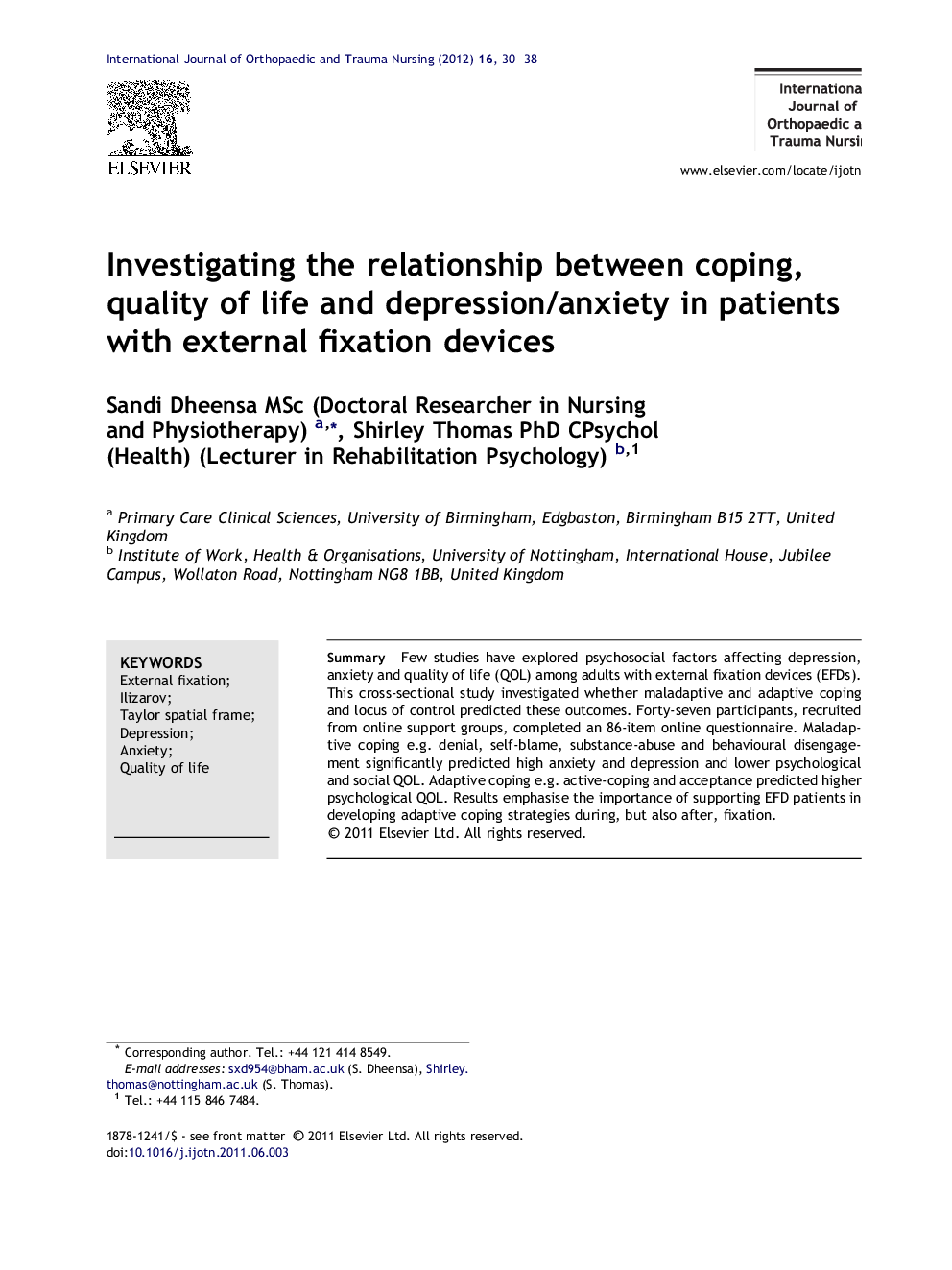| کد مقاله | کد نشریه | سال انتشار | مقاله انگلیسی | نسخه تمام متن |
|---|---|---|---|---|
| 2652809 | 1563998 | 2012 | 9 صفحه PDF | دانلود رایگان |

SummaryFew studies have explored psychosocial factors affecting depression, anxiety and quality of life (QOL) among adults with external fixation devices (EFDs). This cross-sectional study investigated whether maladaptive and adaptive coping and locus of control predicted these outcomes. Forty-seven participants, recruited from online support groups, completed an 86-item online questionnaire. Maladaptive coping e.g. denial, self-blame, substance-abuse and behavioural disengagement significantly predicted high anxiety and depression and lower psychological and social QOL. Adaptive coping e.g. active-coping and acceptance predicted higher psychological QOL. Results emphasise the importance of supporting EFD patients in developing adaptive coping strategies during, but also after, fixation.
Journal: International Journal of Orthopaedic and Trauma Nursing - Volume 16, Issue 1, February 2012, Pages 30–38